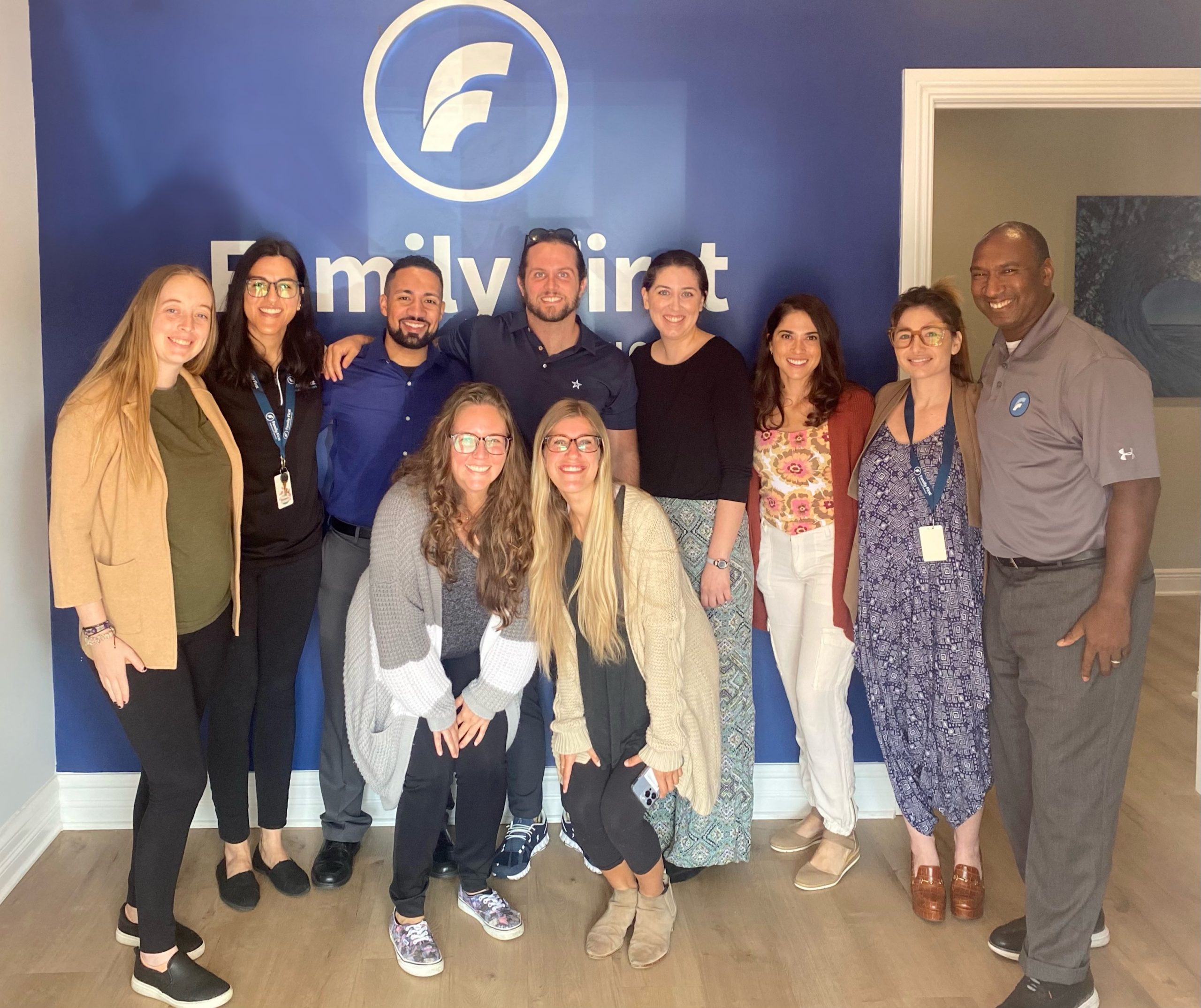Eye movement desensitization and reprocessing (EMDR) is a type of therapy designed to treat mental health issues associated with traumatic memories, such as post-traumatic stress disorder (PTSD) and complex trauma. EMDR for adolescents dealing with unprocessed trauma can provide relief and understanding.
Many of the Family First staff are certified in using EMDR therapy to help teens who visit us for help. A staple in our trauma therapy services, the EMDR therapy program will incorporate this evidence-based method into personalized treatment plans for our clients. Call 888.904.5947 to find out if this approach might be right for your child.
What Happens in EMDR Therapy?
EMDR therapy aids in forging new, more positive ways of accessing and processing traumatic memories. During treatment, a therapist works with a client to reframe thoughts around the traumatic memory.
- Remembering – A client focuses on a troubling memory and identifies the belief about themself connected to this negative memory.
- Positive thinking – Next, the individual works with their clinician to formulate a positive belief about themself.
- Bilateral stimulation – The individual then goes over the memory while focusing on an external stimulus that creates bilateral (side-to-side) eye movement. This could be as simple as following a pen or finger back and forth.
The bilateral stimulation creates a neurological process of accessing both hemispheres of the brain in order to reprocess traumatic experiences and move toward greater integration.
How Does EMDR Therapy Affect the Brain?
In a successful EMDR session, the therapist facilitates the patient’s ability to access their traumatic memory network and improves the way they process information. The patient builds new associations between traumatic memories and more positive and adaptive memories or information. This process helps accelerate new learning, personal insights, better mental habits, and relief from emotional distress.
Clients typically meet with an EMDR-trained therapist at least once a week for 60 to 90 minutes each session. Those who undergo EMDR therapy note decreases in the vividness of disturbing memories and other images, plus a decrease in negative emotions overall. Most patients notice these differences rapidly relative to other forms of therapy.
To learn more about EMDR therapy and whether it is right for your son or not, check out the site for the EMDR Institute, Inc.1
EMDR Therapy for Complex PTSD and Trauma
The term “complex trauma” is used to describe the long-term effects of exposure to multiple traumatic events or sustained periods of trauma, usually trauma that is invasive and interpersonal in nature. Post-traumatic stress disorder is a psychiatric condition that results from experiencing or witnessing a single traumatic event that completely overwhelms a person’s capacity to cope.
More and more clinicians are beginning to recognize EMDR as a powerful tool in treating complex trauma and PTSD. In fact, twenty-four randomized, controlled trials found significant positive effects of EMDR therapy in the treatment of emotional trauma and other negative life experiences.2 Additionally, several studies have concluded EMDR therapy to be faster and more effective than more traditional forms of trauma therapy, including cognitive behavioral therapy (CBT).
Integrating EMDR with Other Therapies
EMDR’s flexibility allows it to fit seamlessly into a multidimensional therapeutic approach to trauma recovery. EMDR for adolescents can be combined with other types of therapy, including experiential therapy, group support, and family counseling. These integrative approaches can provide comprehensive healing from trauma.
- Experiential therapy – Experiential therapies, like art or adventure therapy, provide another outlet for expressing and processing traumatic experiences. When used in conjunction with EMDR, these therapies can help individuals further externalize and confront their trauma, promoting a richer healing experience.
- Group support – Group therapy and support meetings can complement EMDR by providing a safe and supportive environment for individuals to share their experiences and progress. This collective approach can provide additional perspectives, shared understanding, and empathy that enhance the individual’s EMDR journey.
- Family counseling – Family counseling plays a crucial role in the healing process. Family members are often the primary support system for individuals recovering from trauma. Integrating family counseling with EMDR can strengthen this support system by educating family members about the trauma and its effects while empowering them to support their loved one effectively through their healing journey.
Ultimately, the integration of EMDR with these various therapies can create a holistic therapeutic approach that addresses unique needs and promotes comprehensive healing from trauma.
EMDR Therapy for Teens at Family First Adolescent Services
At Family First, we pride ourselves on remaining at the forefront of emerging therapies for PTSD, complex trauma, and related conditions. That’s why we made the decision to have our clinical staff undergo EMDR training.
Our EMDR for adolescents program focuses on treating complex trauma in adolescent males. Family First clinicians focus on improving the dynamics of the families who come through our program as opposed to changing the behaviors of each teen in treatment. EMDR therapy builds an important foundation for information and memory processing that prepares adolescent boys for a more positive, productive future.
As an increasing number of experts start to focus on complex trauma and PTSD as two crucial underlying causes of emotional distress in young boys, we believe it is important to be proactive in offering the latest and most effective therapies to our patients. Family First Adolescent Services is committed to caring for your son with state-of-the-art therapies as well as tried-and-true methods of treatment.
Call Family First for Help Now
If your son suffers from complex trauma, PTSD, or other complex mental or behavioral health issues, reach out to the Family First team today. Our staff is dedicated to helping teens explore their underlying emotions so they can build a better future. We don’t address the symptoms; we address the cause. Call 888.904.5947 or contact us online to start putting your family first.
Footnotes:


